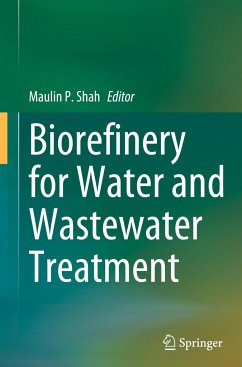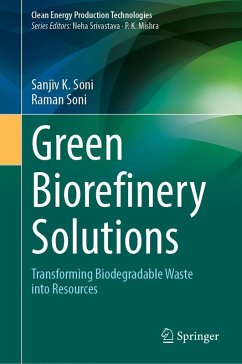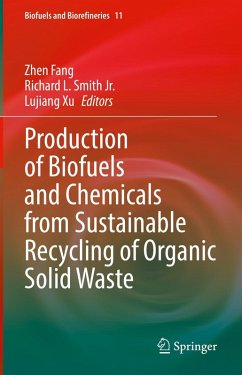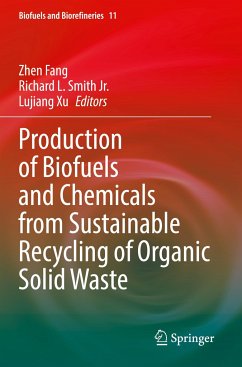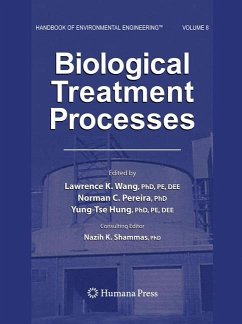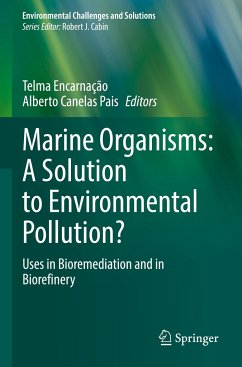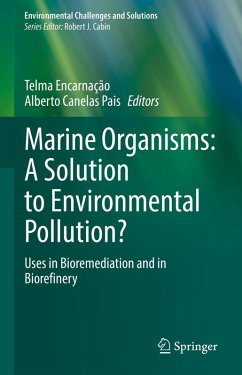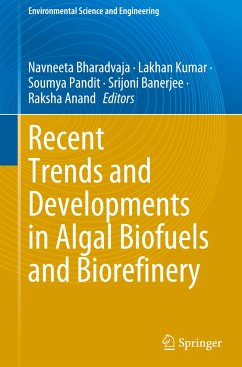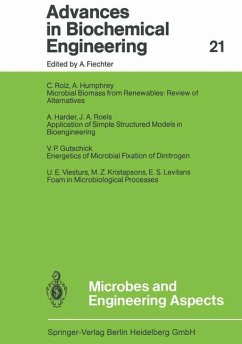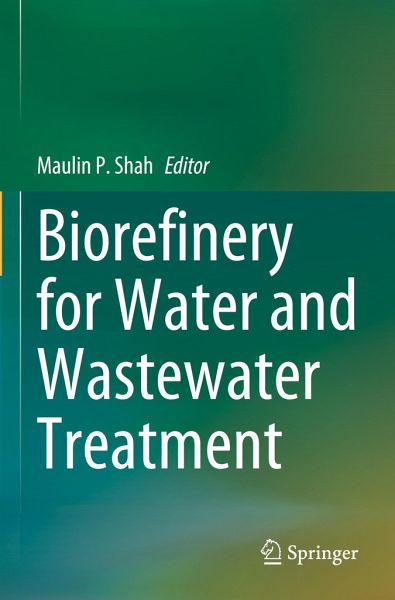
Biorefinery for Water and Wastewater Treatment
Versandkostenfrei!
Versandfertig in 6-10 Tagen
151,99 €
inkl. MwSt.

PAYBACK Punkte
76 °P sammeln!
Bio-refinery approach of microbial fermentation, production of biogas, bioenergy, enzymes, bioactive molecules, agricultural nutrient and many more, which is presently restricted to specific journals, review articles and research papers in conference proceedings. Hence, my effort is to provide a complete and globally available advance knowledge in wastewater treatment with an aim of recovery of value added products. This will help in designing new approaches of waste water treatment with this value added thoughts. Thus, it will be a boon for a concern broad range of readers and industry profes...
Bio-refinery approach of microbial fermentation, production of biogas, bioenergy, enzymes, bioactive molecules, agricultural nutrient and many more, which is presently restricted to specific journals, review articles and research papers in conference proceedings. Hence, my effort is to provide a complete and globally available advance knowledge in wastewater treatment with an aim of recovery of value added products. This will help in designing new approaches of waste water treatment with this value added thoughts. Thus, it will be a boon for a concern broad range of readers and industry professionals to their means of technology development for pollution prevention and economic growth of the country.





